Musical Plays
A wide range of accessible musical plays created by Quintus Benziger which can be performed by all ages, whether in Primary or Secondary Schools, or Drama Groups.
- Packed full of memorable tunes
- They re-use existing music to fit new texts, as in the 18th century Beggars' Opera
- Cleverly adapted to the language of the original books
- They give performers an opportunity to sing music that has stood the test of time
- Suitable for performance by adults and boys and girls in drama groups and schools
- Easy choruses as well as solos of a more demanding nature
- Single-line vocal scores and full keyboard accompaniments can be previewed on request
To buy any of these publications, or to request inspection copies, please contact us.
Click a title below for details.
A musical adaptation of George Orwell's famous fable, set at the time of the Russian Revolution. The music has been adapted from Russian folk tunes and 19th and 20th century Russian orchestral music, and the lyrics and dialogue keep close to Orwell's language and characters.
In the book, Orwell's animals proclaim, “Four legs good, two legs bad”. However, this would look comical on stage. Instead, with the permission of Orwell's widow, this adaptation portrays the powerful pigs eventually wearing spectacles, as Farmer Jones had - breaking the animals' commandment "Two eyes good, four eyes bad".
- Characters

- Farmer Jones
- Pigs:
- Old Major
- Snowball
- Napoleon
- Squealer
- Horses:
- Boxer
- Clover
- Donkey:
- Benjamin
- Raven:
- Moses
- Hens & Sheep
Two samples songs:
Based on Lewis Carroll's Through the Looking Glass, where Alice encounters characters from a game of chess, the whole production can take place on a large chess-board, with the actors as chess-pieces. To underline the variety of different characters, a kaleidoscope of musical styles is presented, using catchy melodies from the 16th-20th century, whilst keeping close to Carroll's language.
The simple keyboard accompaniments can be freely augmented by a variety of instruments, some of which can be played by characters on the chess-board, particularly the four rooks.
- Characters amongst the thirty-two chessmen:

- Alice (optional)
- Red King & Queen
- White King & Queen
- Jabberwock
- White Knight
- Humpty Dumpty
- Tweedle Dum & Dee
- Hatta
- Walrus & Carpenter
- Oysters
A large chess board stage, specially made for productions of this play can be hired from Saffron Choral Prompt. It is made of several sheets of hardboard, with 2' x 2' black and white squares. Ten black and white 1' square boxes for adding height for different scenes are also available.
Two samples songs:
Chaucer's famous Canterbury Tales provides the starting point for this musical play. A group of present-day Essex pilgrims are waiting for their coach to be repaired. They decide to entertain themselves by recounting tales - the first in the medieval style of Chaucer, and the other tales in later periods - Tudor, Baroque, Romantic and 20th century. Each tale uses music of the period, ranging from melancholy medieval to mischievous Music Hall tunes.
Solo parts are taken by members of the chorus.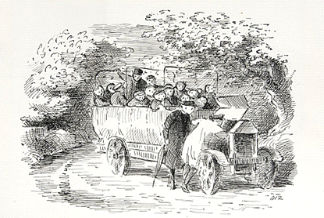
- Characters: in the five scenes
-
- Three robbers, Death
- Chanticleer, Pertalot, Renard
- Nun and Orphans
- Queen, Soldier, Wise Woman
- Miller, Wife, Nicholas, Absalom
Two samples songs:
Based on A Christmas Carol by Dickens, this adaptation draws on music from popular Gilbert & Sullivan songs to create the atmosphere of the 19th century. Whilst keeping close to Dickens' language, it also includes the actual traditional Christmas Carol, and a dance mentioned by Dickens in the book.
This musical dramatisation gives plenty of scope for chorus participation, as well as solo singing and speaking roles.
- Characters:

-
- Scrooge
- Marley
- Bob Cratchit and family
- Three Christmas Spirits
- Carol Singers
- Three Generous Gentlemen
- Three Wily Women
Two samples songs:
Based on Dickens' popular novel Great Expectations, this musical play abounds with folk tunes for the country characters. Classical melodies from the 19th century are used for the contrasting scenes in London, whilst Pip, throughout his journey from being a village blacksmith to becoming a London snob, sings to music from Schubert's famous Winter Journey.
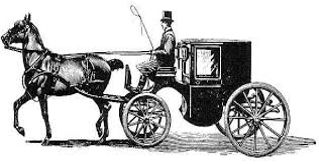
- Characters:
-
- Young Pip
- Older Pip
- Young Estella
- Older Estella
- Miss Haversham
- Joe Gargery
- Mrs Gargery
- Convict
- Jaggers
- Wemmick
Two samples songs:
This musical play weaves together three parables from the New Testament - the Unjust Steward, The Prodigal Son, and The Good Samaritan. Set in the 1930's it draws exclusively on memorable melodies by Gershwin.
- Characters:

-
- Peter, the proprietor of a printing press
- Derek his eldest son
- Owen his younger son
- Grace his elder sister
- Judith his younger sister
- Beggar woman
- Publican
- Merry Makers
Two samples songs:
This is a musical play in which four different stories are woven together. The Brothers Grimm provide the character of Rumpelstiltskin, as an all-pervading villain, who connects the story of Rapunzel with Hans Christian Andersen's stories of the Emperor's New Clothes and What the Old Man does is Right. The music for Rumpelstiltskin and the tale of the new clothes uses 1920's cabaret style music by Kurt Weill, while the peasant scenes draw on Hungarian folk tunes.
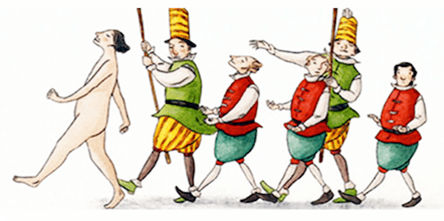
- Characters:
-
- Rumpelstiltskin
- Mayor
- Mayoress
- Weaver
- Peasant
- Peasant's wife
- Peasant's son
- Mayor's daughter
Two samples songs:
A musical adaptation of E. Nesbit's ever-popular novel The Railway Children. The story has been condensed so that the whole production can take place on the station platform, and it revolves around Mr Perks, the jovial porter who becomes the central character.
The music used is from the Victorian era - majestic tunes by Elgar for the family to sing, and cheerful melodies from the music hall for Mr Perks. The lyrics and dialogue keep closely to the language of the book.
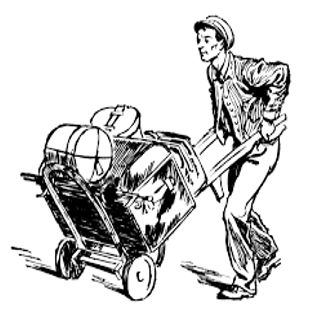 Characters:
Characters:
-
- Mr Perks the porter
- Station Master
- Three children:
- Bobby, Peter & Phyllis
- Mother
- Old Gentleman
- Russian man
- Mabel
- Villagers
Two samples songs:
Based on The Merchant of Venice, this setting draws on tunes which Shakespeare himself would have known. The result is a convincing blend of words and music of the Elizabethan era. A striking feature in this adaptation is the use of Israeli folk tunes for Shylock the Jewish merchant.

- Characters:
-
- Portia
- Nerissa
- Antonio
- Graciano
- Bassanio
- Duke
- Shylock
Two samples songs:
This is a musical adaptation of George Eliots' novel Silas Marner set in a rural 19th century village. The music draws upon English folk tunes for the villagers, and 19th century music for the Squire and his sons, whilst Silas, as the outsider, sings to Hebrew melodies. The lyrics and dialogue keep close to Eliot's language.

- Characters:
-
- Silas Marner
- Squire Cass
- Godfrey, his eldest son
- Dunstan, his second son
- Nancy Winthrop
- Eppie as a child
- Eppie as a young woman
- Aaron as a child
- Aaron as a young man
Two samples songs:
A musical version of the Pied Piper which cleverly combines Browning's words with music from Mozart's opera The Magic Flute. Written for Thaxted Primary School, it was given its first performance as part of the Thaxted Festival.
The Magic Piper consists of a series of musical numbers without any spoken dialogue. The sung narration can be taken by solo or chorus.
- Characters:
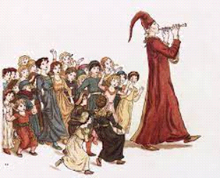
-
- Piper
- Mayor
- Lame Boy
- Last Rat
- Townsfolk
- Children
- Rats
A 4-part choral arrangement is also available for concert performances.
Two samples songs:
Based on the popular classic by Mark Twain, this musical version was written in 2010 to celebrate the author's centenary, when it was give its premiere in the Thaxted Festival. Set in Tudor England, it draws on a variety of tuneful 16th century melodies, interspersed with dialogue in the style of the period.
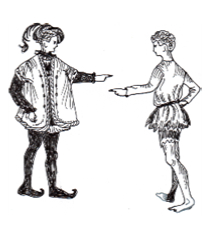
- Characters:
-
- Prince - Edward
- Pauper - Tom Canty
- King Henry VIII
- Mary & Elizabeth Tudor
- John Canty
- Ann Canty
- Nan & Bet Canty
- Gamma Canty
- Miles Hendon
- Hugh Hendon
- Lord Protector
- Archbishop
- Wise Woman
- Town Crier
- Courtiers, Thieves and Street sellers
Two samples songs:
This is a musical adaptation of Jerome K. Jerome's gently humourous 'trip up the Thames'. The music is appropriately Victorian and uses melodies from Gilbert & Sullivan. The three men have the largest share of songs, but a sub-plot has also been introduced, creating additional characters.
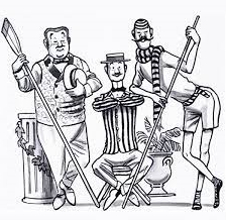
- Characters:
-
- Three men:
- Jerome, George & Harris
- Housekeeper
- Uncle Alex
- Aunt Clara
- Aunt Phyllis
- Lock-keeper
- Reporter
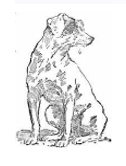 Montmorency (the dog)
Montmorency (the dog)- Porter
- Porter's wife
- Passengers
- Picnic party
- Traders
Two samples songs:
This is a musical adaptation of the Shakespeare's popular comedy Twelfth Night which takes place in an imaginary land of Illyria. Here it moves to the 'real' Mediterranean land of Spain, and this gives the chance to use a wealth of Spanish folk tunes and also some memorable melodies from Bizet's Carmen. The dialogue and lyrics stay close to Shakespeare's original language.
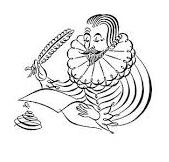
- Characters:
-
- Feste
- Orsino
- Olivia
- Viola
- Sebastian
- Malvolio
- Maria
- Sir Toby Belch
- Sir Andrew Aguecheek
- Fabian
- Priest
Two samples songs:
 HOME
HOME